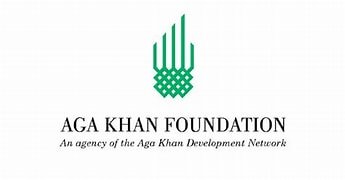Past Projects
Delivering measurable change through our programs across Bihar and Delhi NCR.
*Please Select TAB to view more
Khushali: Integrated family planning, maternal and child health, adolescent health, nutrition, and skill development
Since June 2008, Agragami India has had an active presence in the large, low-income resettlement colony of Madanpur Khadar in south east Delhi. Over these years, its work in Madanpur Khadar has consistently sought to improve the health of mothers and children, ensure healthy adolescent & child development, and bring about economic well-being of families.
Phase 1: from June 2008 to September 2010: This phase of the project was called Pragati. With funding from Pathfinder International, Agragami reached out to 2,347beneficiaries, impacting approximately 10,000 people. Ten women from the community were trained as change agents. They worked with adolescents and newly married/pregnant women to deliver health education, and to promote delayed childbearing, healthy birth intervals, and small families.
Phase II: From November 2010 to September 2011: Agragami India continued its work in Madanpur Khadar, serving about 9000 people, without any donor support.
Phase III: from October 2011-March 2019: The International Foundation for Population and Development (IFPD) supported Agragami to expand its work across the entire Madanpur Khadar resettlement colony. It also supported the expansion of the health intervention into an integrated community development intervention that included early childhood and remedial primary education, open basic education of adult women, community sanitation, and skill development for livelihoods. During these eight years, the population of Madanpur Khadar grew dramatically, from 54,000 in September 2011 to about 86,000 by September 2015, and on to about 100,000 by March 2019. The population was highly mobile, with families frequently moving in and out of the settlement.
From April 2012 to March 2019,the Population Foundation of India also supported the project in adding a school-based health education program, and the formation of women’s groups called Mahila Arogya Samitis to support the work of government frontline workers within the community.
Between April 2018 and June 2019, the Smile Foundation provided support to Agragami’s preschool and remedial education program.
In Phase III, Agragami trained and developed approximately 400 women from the community as agents of change. These women worked closely with the government frontline workers in the community and with families, to improve their health status and quality of life.
Results:
Over the eight-year intervention period, Agragami reached and benefitted all households in Madanpur Khadar that had a pregnant or post-partum woman, a child under the age of 5, an adolescent girl aged 12-14, an adolescent girl or boy aged 15 to 19, or a young married couple. In this period, the project served 39,500 married, pregnant and post-partum women, 20,000 children under 5, 36,600 adolescent girls and boys who were trained on adolescent reproductive and sexual health and nutrition; 1,589 children with pre-school and remedial education inputs, and 250 girls with skill training in beauty culture and tailoring. Some of the girls used their skills to earn money and supplement family income.
COVID vaccination: Between December 2021 and June 2022, Agragami India supported the Azim Premji Foundation and the Delhi Government in their program of COVID vaccination. Through a painstaking program of door-to-door education and mobilization, the Agragami team ensured that 177 outreach vaccination camps were organized and 17,040 COVID vaccination shots were administered.
Childhood immunization: Agragami continues to support the Government of Delhi in carrying out its program of routine immunization through 12 community outreach centres in Madanpur Khadar. Through continuous mentoring, support and monitoring of the 80 government Anganwadi Workers of Madanpur Khadar, and coordination with the District Health Society of South East Delhi, Agragami has ensured that childhood immunization rates in Madanpur Khadar have increased from 14% to 92%, and are being sustained at that level. There are over 5000 children under five in Madanpur Khadar.

June 2008 – June 2022
Madanpur Khadar, Delhi
Strengthening maternal, newborn and child health and nutrition (MNCHN) services
The long-term goal of this project in Mohanpur block was improved survival, health and nutrition outcomes for children in the first 1000 days of life. Project activities strengthened the capacity of government’s frontline health workers to deliver MNCHN services to pregnant and lactating women, neonates, infants and children under the age of two. Community groups were stimulated to advocate with block and district health authorities to improve service-delivery and quality.
The project trained all 360 auxiliary nurse midwives (ANMs), ASHAs and anganwadi workers (AWWs) of Mohanpur block in how to deliver essential MCH services in the community, and in how to document and report their work. Of the 360, 106 served the 58 intervention villages and their performance was closely monitored by the project.
Results:
By the end of the project, it was observed that over 70% of ANMs (compared to 0% before training), were able to deliver key services using correct methods and techniques. 52% of AWWs compared to 18% before training, and 49% of ASHAs compared to 25% before training, performed their work using the right methods and techniques. 4,754 mothers and 2,119 children under the age of two were benefited by the project.

April 2012- December 2015
Mohanpur Block, Gaya district, Bihar
Buniyaad: Reducing infant mortality through optimal infant feeding practices
The project aimed to reduce neonatal and infant mortality through changing behaviour related to feeding practices for children from birth to the age of two years.
120 project trained peer educators and 30 project supervisors reached, educated and motivated 125,000 mothers and other caregivers to adopt good infant and young child feeding practices. Mothers were supported in overcoming infant feeding problems. The project trained 1988 government frontline health workers to incorporate discussion on optimal IYCF practices into their routine work with mothers and infants. Seventy-four ‘Mamtas’ in primary health centres were trained to help women delivering in health centres to breastfeed their babies immediately after birth – even before the umbilical cord is cut.
Results:
- initiation of breastfeeding within 1 hour of birth increased from 16% to 65%
- exclusive breastfeeding till 6 months of age increased from 15.2% to 49.63%
- adoption of appropriate complementary feeding practices at 6 months of age increased from 73.4% to 87.19%
- appropriate complementary feeding at 1 year of age increased from 19.8 to 45.08%

April 2012- March 2015
303 Villages, 6 blocks, Samastipur district, Bihar
1. Parivartan: Building the capacity of self-help group leaders as health communicators
The project worked to increase the adoption of healthy behaviours relating to pregnancy, safe delivery, ante-natal and post-natal care, routine immunization, hygiene and sanitation through strengthening community structures, catalysing collective action, and changing social norms. Agragami’s role was to build the capacity of members of village self-help groups and their cluster coordinators, and to motivate the adoption of healthy behaviour by the community.
Results:
Agragami trained 4,500 Sahelis and Cluster Coordinators in the districts of East and West Champaran, Khagariya, Saharsa, Begusarai, Samastipur, Gopalgunj, and Patna. Training built skills in how to communicate with members of self-help groups and with the community so that they adopt healthy behaviour.

February 2013 – September 2014
8 districts, Bihar
2. Strengthening village health sanitation and nutrition committees in Bihar
The project purpose was to revitalize and strengthen Village Health Sanitation and Nutrition Committees (VHSNCs) in 102 gram panchayats in the districts of Khagaria and Saharsa. Agragami’s role was to provide training and technical assistance to the VHSNCs and their members.
- 102 VHSNCs and 220 ‘Nigrani Samitis’ were formed;
- members of committees understood that each of them had a distinct and important role to play in contributing to improving the status of health, nutrition and sanitation in the community;
- all VHSNCs were assisted in opening/reviving bank accounts for receipt and utilization of untied funds allotted to the VHSNC;
- committees and samitis were enabled to effectively utilize the small untied funds allotted to each village for minor works. Funds spent were properly documented, and utilization certificates submitted to Government.

April 2014 – June 2015
2 districts, Bihar
3. Community based planning and monitoring program
Agragami supported and built the capacity of 2 NGO grantees of The Population Foundation of India, to mobilize their communities to utilize essential maternal and child health services and also to influence district health authorities to improve service delivery. Under the project, Agragami trained 700 Village Planning and Monitoring Committee members on community-based health planning and monitoring.

Nov 2011 - June 2014
60 Villages, 10 Panchayats, 2 Blocks, Gaya district, Bihar
Voluntary civil society action for family planning
Forty-five Bihar based civil society organizations (CSOs) came together to work voluntarily to promote family planning and to advocate for the right of women to decide on the timing and spacing of their children and of the size of their families. The objective was that Bihar should achieve its Family Planning 2020 goal of 71.25 lakh new users of contraception.
The CSOs integrated family planning promotion into whatever community-based intervention activities they were implementing – health, education, poverty alleviation, livelihoods, or self-help groups. A key idea of the project was to identify, capacitate and use champions from the community who believed in family planning, to promote it. Agragami coordinated and facilitated this network of CSOs, built the capacity of its members and champions, and gave the champions visibility through documentation of their stories and media coverage.

June 2017-June 2019
15 Districts, Bihar
1. Ananya: Changing social norms related to child marriage
The project in Mohanpur block sought to change social norms related to child marriage by forming and strengthening child protection committees (CPCs) at the district level, chaired by the District Magistrate.
500 adolescents were trained as discussion leaders. They conducted discussion meetings with 3960 adolescents and built awareness in the community about the ills of child marriage. They were supported by 163 government frontline community health workers and were trained to conduct community meetings on the issue of child marriage.
Results:
Adolescent girls reported:
- improved ability to discuss and negotiate with parents on various issues
- increased discussion with their peers on reproductive and sexual health issues and rights
- Mothers of adolescent girls reported:
- heightened awareness of their own tendency to discriminate against girls
- greater comfort in allowing daughters to participate in project sponsored activities

October 2014-December 2015
66 Villages, 1 Block, Gaya District, Bihar
2. Tarunya
EngenderHealth entrusted the implementation of its Tarunya project to Agragami India. Agragami built the capacity of the district’s primary health system to implement the Government’s Rashtriya Kishore Swasthya Karyakram (RKSK).
The project reached over200,000 adolescents of the 845 villages of the district.
Adolescents who participated in adolescent group meetings and discussions reported that participation in the reproductive health sessions helped them to better understand and cope with the growth, development and changes that they were experiencing.
Parents who participated in the project’s positive parenting discussions, reported that they better understood the needs and behaviour of their adolescents and spent more time engaging with them. This built supportive relationships. Adolescents on their part reported that positive interaction at home with parents had increased. Peer educators trained by and involved in project activities grew in confidence, assertiveness and communication skills. Twelve adolescent peer educators were selected by the health system as district resource persons for training adolescent peer educators. One young female peer educator was selected as a member of the twenty-member national youth advisory committee formed in 2023 by the Government of India and UNFPA.
Results:
149 auxiliary nurse midwives and 3,112 ASHAs were trained to serve the adolescents of the district. 17 adolescent friendly health clinics were set up in the district’s primary health centres, and served adolescents with counselling and care for adolescent health issues. 6,224 adolescent peer educators were selected and trained to lead community-based activities such as peer group meetings to discuss health issues, set up adolescent health clubs, and organize adolescent health days. Through these activities, adolescents were informed on adolescent health and development issues.

June 2017- March 2024
845 Villages, 17 Blocks, Sitamarhi District, Bihar
1. Comprehensive sexuality education
In this youth-led program in Mocharim and Bakraur panchayats of Bodhgaya block, young adult trainers and mentors worked alongside 25 adolescent male and female peer educators from the community to disseminate comprehensive sexuality education to 750 other adolescents. Inputs provided to adolescents were designed to develop informed and responsible, rights-based decision-making related to their sexual and reproductive health, and skills to advocate for comprehensive sexuality education.
Results:
Advocacy skills acquired by the adolescents were demonstrated at an end-of-project Kishore Sammelan, at which adolescents addressed a six-hundred strong audience consisting of the Deputy Collector, the Block Education Officer, members of the media, their peers, community members and parents. They spoke up with conviction for themselves, advocating for the inclusion of comprehensive sexuality education in the school curriculum, the provision of adolescent guidance and counselling services in government primary health centres, and for representation on the District Committee for Adolescent Health. As a result, one adolescent has been included in the membership of the District Committee.

July 2019 – March 2021
10 villages, 3 panchayats, 1 block, Gaya district Bihar
2. Youth leadership and advocacy for comprehensive sexuality education program
This project aimed to improve adolescent health within the broader Maternal and Child Health framework by training 1,200 adolescent girls (aged 15-19), both married and unmarried, in comprehensive sexuality education. The participants came from the low-income, slum resettlement colony of Madanpur Khadar, with a population of 125,000.
The twelve-hour program was focused on topics such as delaying sexual debut, practicing safe sexual behavior, using contraception from the first act of intercourse, delaying childbearing until the woman is 20 years old, handling peer pressure, fostering respect in relationships, preparing for parenthood, and protecting oneself from sexual abuse.
The training methodology was participatory, emphasizing the development of positive attitudes and responsible behavior. Participants engaged in discussions on topics including biological and psychological changes during adolescence, reproduction, prevention of sexual abuse, contraception, gender equality, and self-esteem. The sessions were conducted both in the community and in schools.

2024 - 2025
Madanpur Khadar, South East district, Delhi
